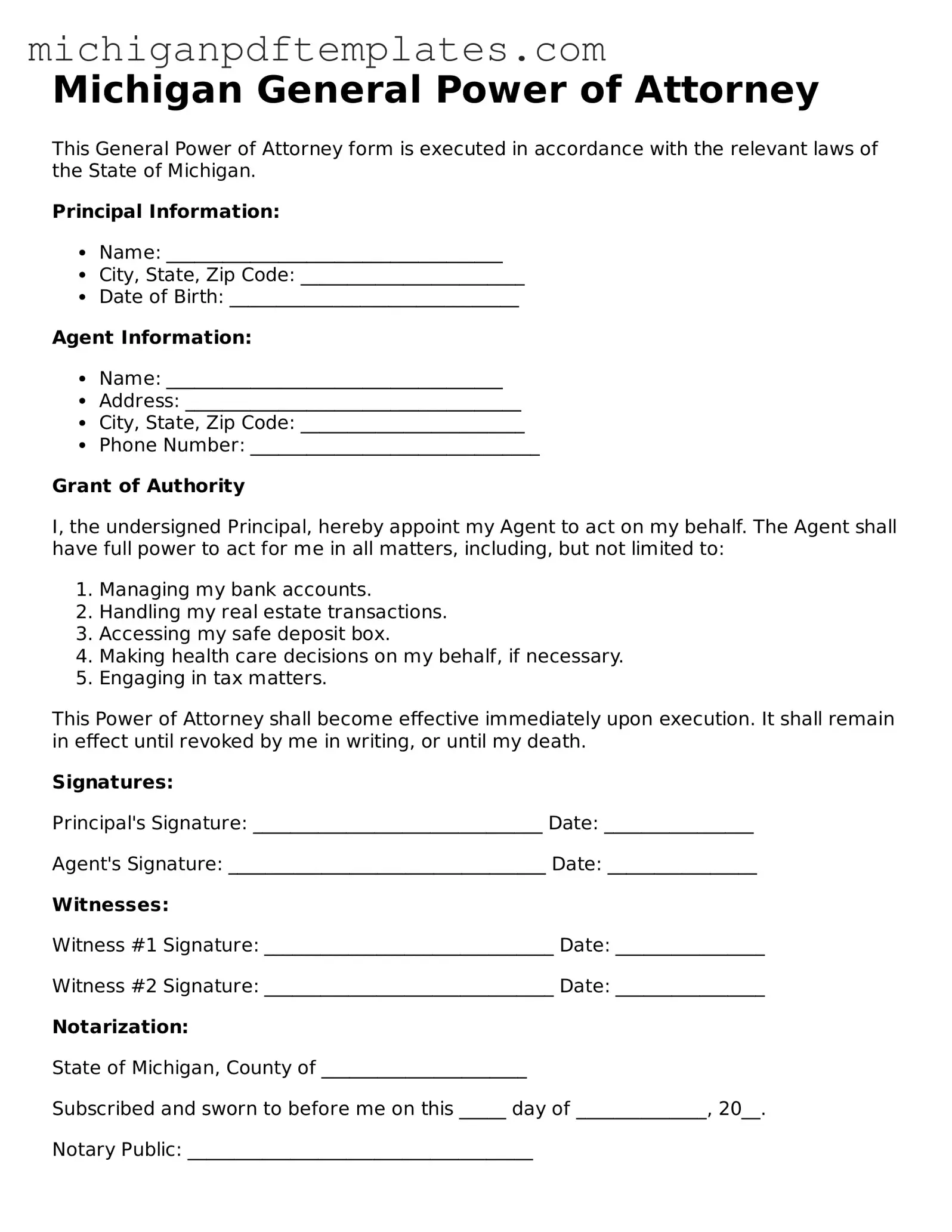Legal Michigan General Power of Attorney Template
A Michigan General Power of Attorney form is a legal document that allows one person to grant another the authority to make decisions on their behalf. This form can cover a range of financial and legal matters, ensuring that someone you trust can act in your best interest when you are unable to do so. To get started on filling out the form, click the button below.
Get Your Form Now

Legal Michigan General Power of Attorney Template
Get Your Form Now

Get Your Form Now
or
▼ PDF Form
Finish this form quickly and move on
Fill in and complete General Power of Attorney online quickly.